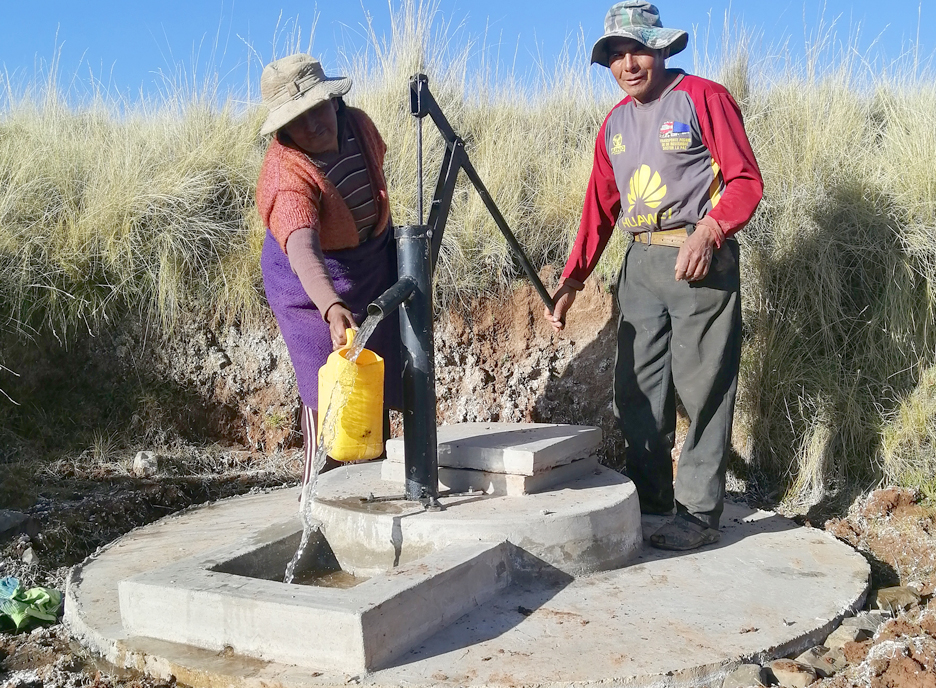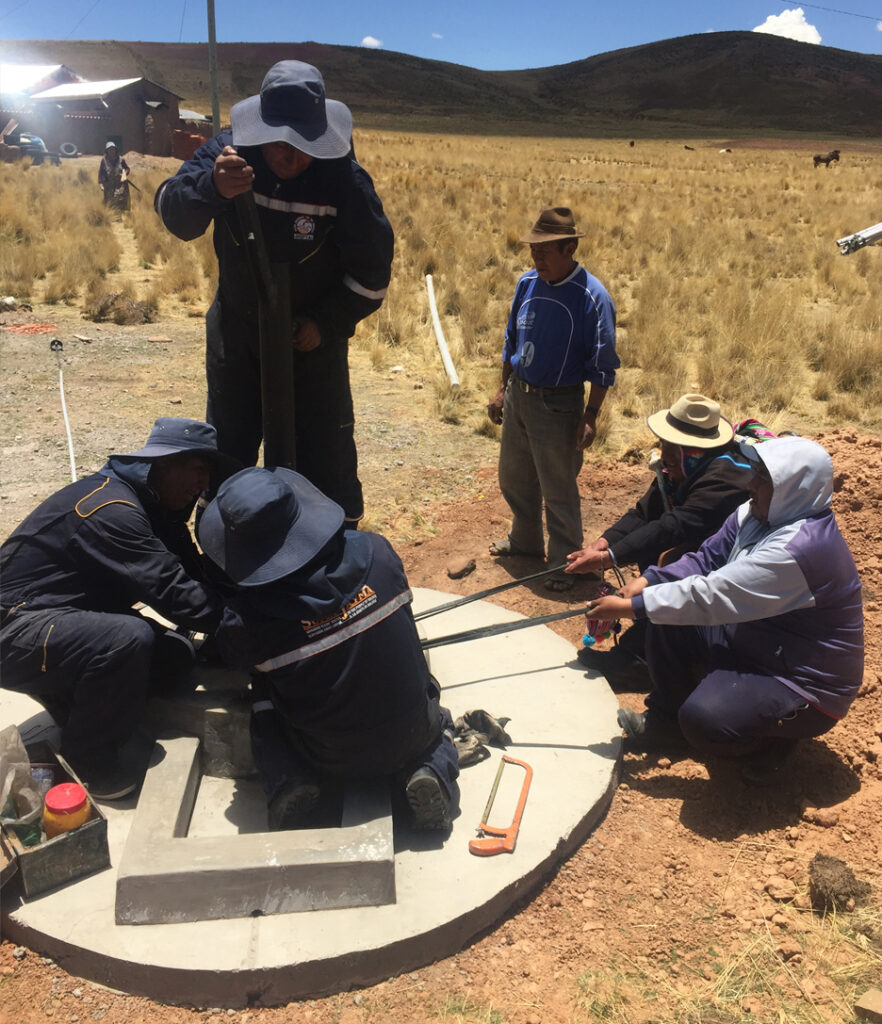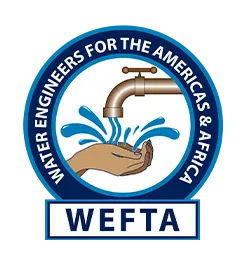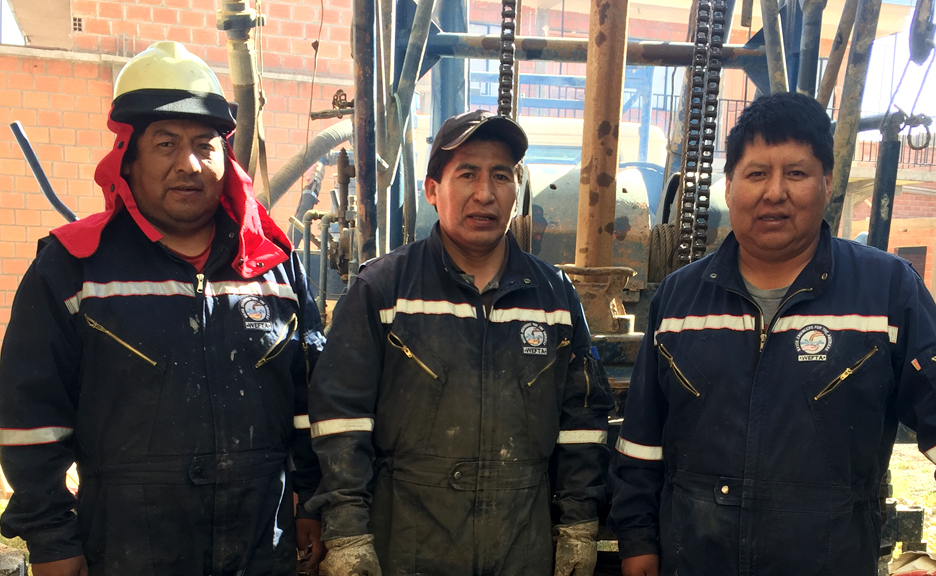Introduction
Bolivian families living on the highland plateau known as the Altiplano are the beneficiaries of a fruitful partnership between WEFTA and the in-country organization, Suma Jayma. Since 2004, this collaboration has completed numerous groundwater well installations and sanitation projects. Residents become directly involved in these vital efforts by contributing labor and materials.

Bolivia is regarded as the poorest country in South America. It also has the largest proportion of indigenous people on that continent. Before the construction of groundwater wells, families had no other option but to procure water from unprotected sources contaminated by livestock and other animals. This practice raises the risk of exposure to waterborne microbes that can cause illness and death. With access to safe water from groundwater wells and hygienic sanitation services, however, life on the Altiplano is healthier, a factor that encourages young families to remain in their native communities.
About Suma Jayma
Founded in 2000, Suma Jayma is a non-governmental organization of the Aymaran indigenous people of Bolivia. The organization focuses on installing groundwater wells and sanitation services and training communities to manage and operate their water resources. In addition to WEFTA, Suma Jayma also works with other organizations to supply safe water and sanitation to residents of the Altiplano. These include CONSES, which is collaborating with Suma Jayma and the Wheaton Franciscan Sisters to construct 30 ecological bathrooms for families in rural communities in Cochabamba. These bathrooms sustainably transform waste into fertilizer.

Hand-dug Wells on the Altiplano
Suma Jayma frequently constructs hand-dug wells, observing all necessary safety precautions. The process starts with Suma Jayma and community members digging a one-meter diameter well to the depth of the local water table. Concrete well casings are then constructed and installed, ensuring the integrity of the well and protecting well water from contamination. A concrete pad is made and placed atop the well opening and connected to the well casing. The pad protects the wellhead from surface contamination.
Next, a drop pipe is prepared, and a hand pump installed above the well pad. The hand pumps that power these wells are fabricated manually by Suma Jayma using locally sources materials.
WEFTA and Suma Jayma Partnership Accomplishments in 2023
Adding to the many impressive projects completed between 2004 and 2022, the WEFTA-Suma Jayma partnership in 2023 helped develop safe water sources for communities in Brazil’s Pacajes and Caqueaviri Municipalities. In May 2023, with financial support from the Wheaton Franciscan Sisters, wells and hand pumps for 100 families were completed in the Casquiri, Llujturi, Lanquiri, Romercaty, and Huanuma communities in the Pacajes Municipality, benefiting over 524 people. Additionally, the Suma Jayma/WEFTA partnership installed 11 wells and hand pumps for as many families in the Copatamaya Community of the Caqueaviri Municipality. Financial support for the project came from The Spirit of Christ Church in Colorado.
Support for Our Vital Work on the Altiplano
WEFTA volunteers will continue to collaborate with Suma Jayma to bring water and sanitation services to communities of the Altiplano. Your donations can help us in this life-saving work!

